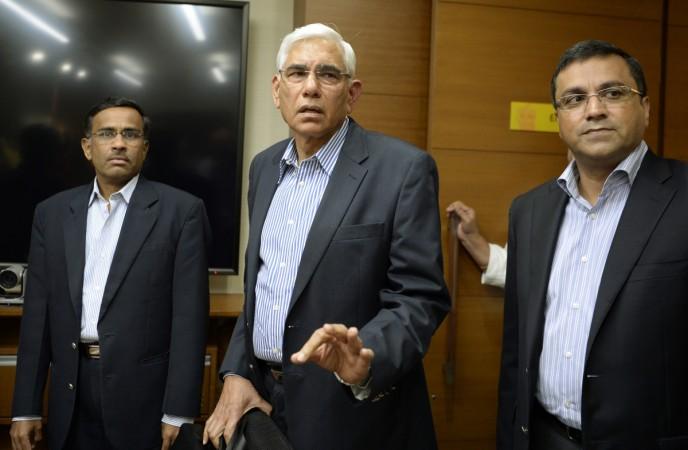
Close on the heels of RBI governor hitting out against weak regulatory environment in public sector banks, the chief of Banks Board Bureau (BBB) has accused the government of grave negligence in the implementation of bank governance reforms.
BBB Chairman Vinod Rai, former Comptroller and Auditor-General, said the need of the hour is to rework "nearly five decades of institutional structures and processes which was put in place with the nationalisation of banks."
Rai hit out against the government, saying that BBB's recommendations were never taken seriously and that the panel was functioning merely as an appointment board. He said the request for a meeting with Finance Minister Arun Jaitley was not accepted even after several months.
He said the government has not acted on BBB's recommendations in matters relating to appointments, compensation, performance assessment and governance.
Rai echoed the views of RBI governor Urjit Patel, who said the apex bank doesn't have as much control over public sector banks as it has over the private sector.
"While the government retains its majority shareholding, it is very much possible for the public sector to reach the same levels of efficiency as the private sector, provided governance regulations, supervision and the developmental agenda are allowed to be ownership-neutral," the report said.
The Banks Board Bureau was established in 2016 with the goal of implementing governance reforms in public sector banks. The report, which assumes significance in the backdrop of the RS 13,800 crore PNB loan scam, said BBB had made recommendation "with the objective that governance standards within PSBs should be allowed to have the capacity to lean against the risk of behest-lending and to reduce the moral hazard from implicit sovereign guarantee."
The report says that though governance standards have improved in the country since bank nationalization this hasn't reflected adequately in the PSB ecosystem.
Flaws in the credit underwriting
Addressing the rising concern over NPAs in the public sector banks, the report says the government did not allow the board to act on its recommendations. It says it did not get the mandate "to develop an independent perspective on stressed asset strategy and coordinated effort among PSBs towards recovery".
"....since the government had not acceded to the bureau's request for a specific mandate on a stressed asset strategy, the bureau stepped aside from making any further efforts in the matter," the report adds.
The report also points to the flaws in the credit underwriting decisions and practices followed by public sector banks. It particularly mentions the practice of non-executive directors sitting on the Management Committee of the Board (MCB) that takes decisions on large value credit. The report asks if the involvement of non-executive Directors in approving large value proposals would fulfil the spirit of good governance. "Rather, it could be argued that presence of non-executive Directors on the MCB would dilute their ability to exercise supervisory oversight on the management function of the Board," the report adds.

















